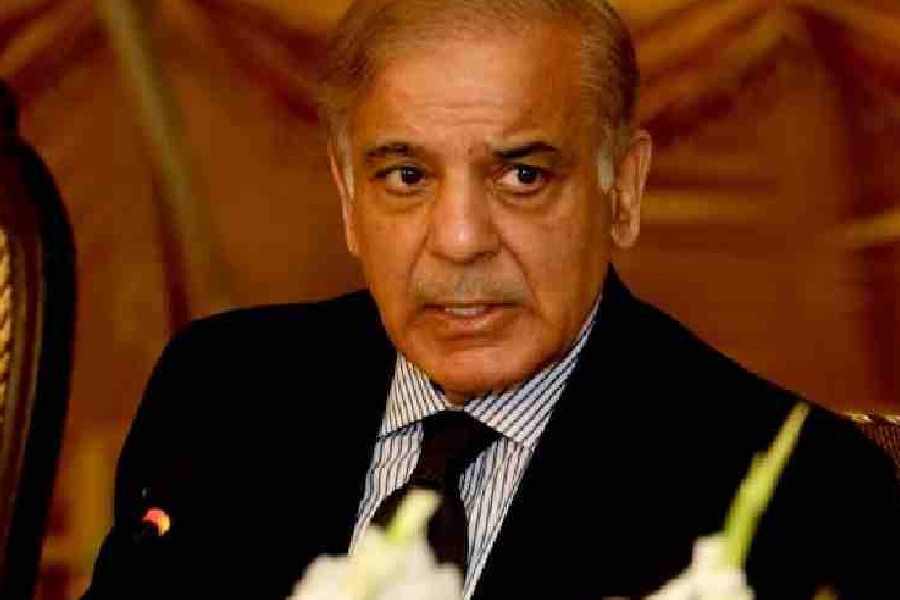Islamabad: In an unprecedented escalation of tensions, Pakistan on Thursday vehemently rejected India’s unilateral suspension of the 1960 Indus Waters Treaty, terming it a direct threat to its national security and a hostile move tantamount to an act of war.
The decision comes a day after India, reeling from the deadly militant attack in Pahalgam, Jammu and Kashmir that claimed the lives of 26 tourists, announced a slew of retaliatory measures targeting Pakistan, which it accuses of fostering cross-border terrorism. Chief among these measures was the suspension of the landmark water-sharing agreement that has survived multiple wars and decades of hostilities between the two neighbours.
The response from Islamabad was swift and combative.
Following a high-level National Security Council meeting chaired by Prime Minister Shehbaz Sharif, Pakistan issued a strongly worded statement condemning India’s decision, warning that blocking the Indus waters would endanger the lives and livelihoods of 240 million Pakistanis.
“The Indus Waters Treaty is not a piece of paper that can be discarded for political theatrics. It is the lifeline for millions. Any move to stop or divert Pakistan’s share of water will be viewed as an Act of War and shall be met with resolute and full-spectrum retaliation,” the Prime Minister’s Office (PMO) said in a press release.
In a dramatic escalation, Pakistan also declared that it would place all bilateral agreements with India, including the Simla Agreement, in abeyance until India ceases what it described as “state-sponsored terrorism,” “cross-border assassinations,” and “flagrant violations of international law and UN Resolutions on Kashmir.”
Islamabad’s retaliation wasn’t confined to rhetoric. In a sweeping move, Pakistan shut down the Wagah border crossing, closed its airspace to Indian carriers, and suspended all trade routes with India, including indirect trade via third countries.
“The Wagah Border Post shall stand closed with immediate effect. All cross-border movement through this route is suspended without exception. Indian nationals who entered with valid documents may return no later than April 30, 2025,” the statement read.
In another measure targeting people-to-people contact, Pakistan suspended all SAARC Visa Exemption Scheme (SVES) privileges extended to Indian nationals. All Indians currently in Pakistan under the scheme—except Sikh religious pilgrims—have been ordered to exit the country within 48 hours.
India, too, rolled out a series of reciprocal steps on Thursday. The Ministry of External Affairs announced the revocation of all valid Indian visas issued to Pakistani nationals, effective April 27. Medical visas have been given a grace period until April 29.
“All Pakistani nationals currently in India must leave the country before their visa expires,” the MEA said in a statement. Indian citizens were strongly advised to avoid travel to Pakistan, and those already there were urged to return home immediately.
These developments come a day after India downgraded diplomatic ties, expelled Pakistani military attachés, and ordered the closure of the Attari land-transit post. The Cabinet Committee on Security, led by Prime Minister Narendra Modi, deemed these measures necessary in light of “conclusive evidence” linking the Pahalgam attackers to handlers across the border.
India’s Foreign Secretary Vikram Misri emphasized the gravity of the terror attack, declaring that the Indus Waters Treaty—a rare example of enduring cooperation between the two countries—would be “held in abeyance until Pakistan irreversibly halts support for cross-border terrorism.”
Pakistan, however, sees the move as a provocation too far.
“This is not just about water. This is about sovereignty, about justice, and about the deliberate use of humanitarian resources as a weapon of coercion,” the Pakistani PMO stated. “India should abandon its reflexive blame game and staged narratives. Pakistan will not be bullied.”
The Indus Waters Treaty, brokered by the World Bank in 1960, has long been hailed as a pillar of regional stability even during wars. It allocates the eastern rivers (Beas, Ravi, Sutlej) to India and the western rivers (Indus, Jhelum, Chenab) to Pakistan, with certain usage rights extended to both parties.
India’s decision to suspend the treaty marks a historic rupture, one that observers fear could lead to a new phase of confrontation between the two nuclear-armed neighbours.
Diplomats and analysts around the world are watching closely. With both nations invoking “national power” and “reciprocal force,” what began as a tragic terror attack in Kashmir now risks spiraling into a broader conflict—one that runs through rivers, treaties, trade, and borders alike.






